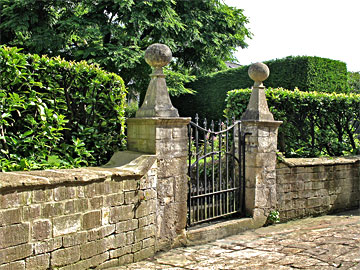Masonry Walls in the Garden
A masonry wall is a valuable addition in almost any garden. By masonry wall, we are typically referring to a structure built with bricks that are held together with mortar.
The potential for using masonry walls in the garden is enormous. As well as providing security around the perimeter of your garden, they can be used, for example, as retaining walls for raised beds or to construct terraces on steep sloping ground. They can be used to construct garden features such as pergolas, barbecues, compost bins, plinths, birdbaths, planters or seating. And walls don’t have to be built in straight lines. For example, a low wall could be built alongside a serpentine path. In fact a wall that is built to weave from side to side is significantly stronger than one that is built in a straight line and is far less likely to topple over.
Building materials
Visit a builder’s merchant and you will see an astonishing range of bricks on sale, made from various materials, with different surface textures, colours, sizes and shapes. Consequently it should be possible to construct a masonry wall that fits beautifully with just about any style of garden.
We are probably most familiar with bricks made from clay that are fired at around 1000 degrees C to impart their considerable strength. Often referred to as common brick, they are a favourite material for all kinds of buildings because of their durability.
However, a masonry wall can also be constructed from other materials such as concrete blocks, cast stone or more exotic materials such as glass or marble. You would be well advised to make an initial visit to the merchant simply to gain an idea of what is available. It is then allowing some time for various ideas to come together in your mind as to how you want to incorporate the structure into your overall garden design.
Advantages and Disadvantages of Masonry Walls

In the garden, the benefits of a masonry wall include:
- Good looks if materials are chosen carefully to fit with the rest of the garden
- Strength and durability when compared with other forms of construction such as timber, concrete or steel, for example
- Resistance to fire, forms of corrosion and tolerable impacts
- Requires minimal maintenance
It would be wrong not to mention that there are some potential disadvantages such as:
- Needs a strong foundation, typically concrete laid on a sound base
- Does not cope well with ground movement
- Requires a degree of skill to produce a top quality job
Read about more Gardening Techniques |
